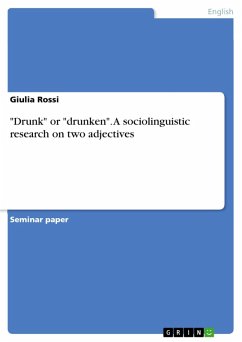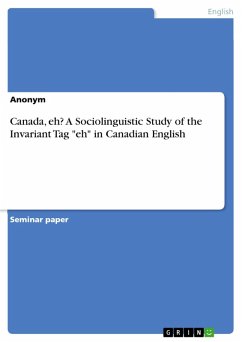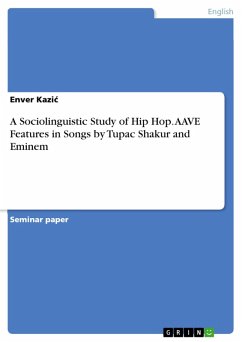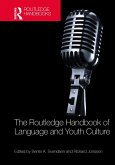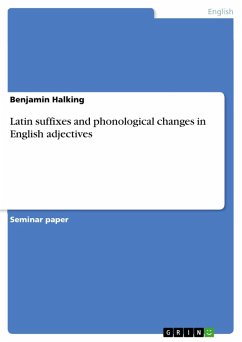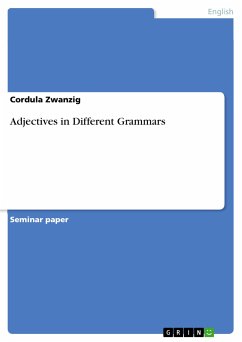Seminar paper from the year 2017 in the subject English Language and Literature Studies - Linguistics, grade: 5.5 (CH) d.h. 1.5 (DEU), University of Zurich (Englisches Seminar), course: Introduction to Linguistics, Part I (Seminar Group 6), language: English, abstract: This paper sets out to examine the use of the adjectives "drunk" and "drunken". According to the Oxford English Dictionary the definition of "drunk" is "Affected by alcohol to the extent of losing control of one's faculties or behaviour", and that of "drunken" reads "Drunk or intoxicated". Consequently, their use on the lexical level seems to be the same and, therefore, interchangeable. Both expressions are used in temporary English and are not antiquated. Thus, the question may arise whether other factors determine the application of each of these adjectives. The field of sociolinguistics deals with such questions of variation in language or more precisely in the use of different expression denotating the same meaning, while it does not simply assess different utterances as either correct or incorrect. Sociolinguists like Sali Tagliamonte rather examine language influencing variables like discourse features, social patterns or linguistic patterns, of which the two latter ones will serve as the investigative frame of the two adjectives "drunk" and "drunken". In order to probe thoroughly into the usage of these two words, this paper, firstly, delivers a look into previous research on, and into the theoretical background of the respective adjectives. Secondly, the original data, namely the British National Corpus, and the gained random samples from this corpus are characterized, whereafter the methodology of coding for social (accent, sex and social grade) and linguistic (various syntactic functions) features is explained. The results and analysis of this coding for factors which may influence the usage of "drunk" and "drunken" are, thirdly, presented quantitatively and qualitatively in the two sections of social patterns and of linguistic patterns. These two analyses are discussed separately as well as in view of the respective other patterns to gain the deepest possible insight into the findings of this linguistic research. Finally, this paper is completed by a conclusion, which rounds off the linguistic intention to examine whether social and linguistic variables influence the usage or preference of the synonymous adjectives "drunk" and "drunken".
Dieser Download kann aus rechtlichen Gründen nur mit Rechnungsadresse in A, B, BG, CY, CZ, D, DK, EW, E, FIN, F, GR, HR, H, IRL, I, LT, L, LR, M, NL, PL, P, R, S, SLO, SK ausgeliefert werden.

